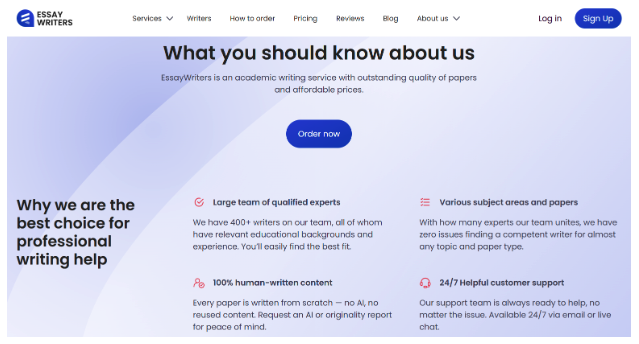The Introverted Leader
Introverts don’t exactly make textbook-definition leaders, who are often seen as being loud, gregarious, dominant, and assertive. That doesn’t mean introverts are bad leaders – far from it. Their quiet, self-reflective nature makes them incredibly effective at guiding, mentoring, and calling the shots. Some of the most well-known leaders of our time are introverts.
What Is An Introverted Leader
An introverted leader is someone who prefers to work independently, in a quiet and focused environment, and often needs time alone to recharge their energy. They tend to be introspective and thoughtful, and may appear reserved or shy in social situations. While introverted leaders are often associated with being less assertive or charismatic than their extroverted counterparts, research has shown that they bring unique strengths to the table, such as excellent listening skills, thoughtful decision-making, and the ability to connect with others on a deeper level.
Introverted leaders are not necessarily anti-social or introverted in every aspect of their life, but rather they draw energy and inspiration from introspection and reflection. They may excel at tasks that require concentration and analysis, and may prefer to communicate in writing or small group settings rather than large, loud gatherings.
In today's fast-paced and highly competitive workplace, introverted leaders may be overlooked or undervalued due to stereotypes that equate leadership with extroversion. However, this assumption is not only unfair but also inaccurate. Introverted leaders can be highly effective, and their unique strengths should be recognized and appreciated.
How Do I Know If I’m an Introverted Manager
If you're wondering whether you are an introvert manager, there are several signs that can help you determine your personality type. Here are some common traits of introverts:
You prefer small group settings over large social gatherings: If you feel more comfortable in one-on-one conversations or small groups rather than large, noisy gatherings, you may be an introvert.
You need alone time to recharge: Introverts tend to feel drained after spending a lot of time with others, and need alone time to recharge their energy.
You enjoy deep conversations: Introverts typically prefer deep conversations with others, and may feel uncomfortable with small talk.
You are introspective: Introverts tend to be reflective and introspective, and may spend a lot of time thinking about their own thoughts and feelings.
You are a good listener: Introverts are often excellent listeners, and tend to value listening over speaking.
You dislike being the center of attention: If you feel uncomfortable being the center of attention, you may be an introvert. Introverts tend to prefer working behind the scenes rather than in the spotlight.
You enjoy creative pursuits: Introverts often enjoy creative pursuits like writing, drawing, or playing music, as these activities allow them to express themselves in a quiet and introspective way.
Remember, being an introverted manager is not a negative thing, and there is no "right" or "wrong" personality type. Whether you are an introvert or an extrovert, both personality types have their own unique strengths and can be effective leaders.
Dispelling the myth that all leaders are extroverted
The common stereotype that all leaders are extroverted is a myth that needs to be dispelled. While extroverted leaders may be more visible and vocal, research has shown that introverted leaders can be just as effective, if not more so.
In fact, introverted leaders can bring unique strengths to the table that extroverted leaders may lack. For example, introverted leaders tend to be excellent listeners, and may be more attuned to the needs and concerns of their team members. They may also be more thoughtful and deliberate in their decision-making, taking the time to consider all options and gather information before making a final decision.
Furthermore, many successful leaders throughout history have been introverted, including Warren Buffett, Bill Gates, and J.K. Rowling. These leaders have been able to achieve great success not in spite of their introversion, but because of it.
It's important to recognize that leadership styles are not one-size-fits-all, and that different personality types can be effective in different leadership roles. By dispelling the myth that all leaders are extroverted, we can create a more inclusive workplace culture that values and celebrates different personality types and leadership styles.
The Importance of Recognizing and Valuing Introverted Leaders
Introverts don’t need to be loud or dominant, and they like being quiet and listening to other people. In a workplace setting, this translates to them listening to everyone’s input and allowing other people to showcase their talents. Furthermore, their non-dominant nature makes them less controlling, which is good for employee morale and makes them approachable bosses. Recognizing and valuing introverted leaders is important for several reasons:
Diversity in leadership styles
Diversity in leadership styles leads to more innovative ideas and better decision-making. By recognizing and valuing introverted leaders, we can create a more inclusive workplace culture that celebrates different personality types and leadership styles.
Unique strengths
Introverted leaders bring unique strengths to the table, such as excellent listening skills, thoughtful decision-making, and the ability to connect with others on a deeper level. These strengths can be valuable in a variety of leadership roles. These are qualities employees want in their leaders and can lead to increased employee engagement, increased retention, and higher productivity.
Better communication
By understanding and valuing introverted leaders, we can improve communication in the workplace. Introverted leaders may prefer to communicate in writing or small group settings, and by recognizing this, we can create a more comfortable and productive environment for everyone.
Improved productivity
By valuing and recognizing introverted leaders, we can improve productivity in the workplace. Introverted leaders may excel at tasks that require concentration and analysis, and may be more productive when given the time and space to work independently.
Personal growth
Recognizing and valuing introverted leaders can also lead to personal growth for individuals. Introverted leaders may feel more confident in their leadership style, and may be more willing to take on leadership roles when they feel their strengths are valued and appreciated.
In short, recognizing and valuing introverted leaders is essential for creating a more inclusive and productive workplace. By celebrating different personality types and leadership styles, we can foster innovation, improve communication, and help individuals grow and thrive in their roles.
Overcoming Stereotypes and Biases
Overcoming stereotypes and biases is a key step in recognizing and valuing introverted leaders. Unfortunately, many people hold biases against introverts, viewing them as shy, weak, or lacking in leadership skills. These biases can be harmful, both to introverted individuals and to the organizations they work for.
To overcome these stereotypes and biases, it's important to educate ourselves and others about the unique strengths and abilities of introverted leaders. We can do this by promoting awareness and understanding of different personality types, and by encouraging individuals to embrace their own strengths and leadership styles, regardless of societal expectations.
We can also work to create a more inclusive workplace culture that values and celebrates different personality types and leadership styles. This can be achieved by providing training and resources to help individuals better understand and appreciate different leadership styles, and by promoting a culture of respect and collaboration.
Finally, we can take steps to address any biases or prejudices that we may hold ourselves. This can involve reflecting on our own beliefs and assumptions, and challenging ourselves to question any biases that may be influencing our thoughts and actions.
By overcoming stereotypes and biases, we can create a more inclusive and productive workplace culture that values and celebrates the unique strengths of all individuals, including introverted leaders.
The Importance of Self-Promotion and Visibility
While introverted leaders may not be as naturally inclined towards self-promotion and visibility as their extroverted counterparts, it's still important for them to develop these skills in order to advance their careers and achieve their goals.
Self-promotion involves actively showcasing one's skills, accomplishments, and contributions to the organization. This can include sharing success stories with colleagues and superiors, seeking out opportunities to lead and make an impact, and advocating for oneself when it comes to promotions and career advancement.
Visibility, on the other hand, involves making oneself visible and accessible to others within the organization. This can include attending networking events and professional development opportunities, participating in company-wide initiatives, and seeking out opportunities to collaborate with others.
Developing these skills can be challenging for introverted leaders, but it's important to remember that self-promotion and visibility are key components of career success. By actively promoting oneself and making oneself visible within the organization, introverted leaders can ensure that their contributions are recognized and valued by others.
Furthermore, developing these skills can help introverted leaders build their confidence and assertiveness, which can be valuable in a variety of leadership roles. By stepping out of their comfort zones and taking on new challenges, introverted leaders can become more effective and influential in their roles, and can achieve greater success both personally and professionally.
Finding Ways to Balance Solitude and Collaboration
Balancing solitude and collaboration is a challenge that many introverted leaders face. While introverts may thrive in quiet, introspective environments, collaboration and teamwork are often essential components of effective leadership.
One way to find a balance between solitude and collaboration is to identify tasks and activities that can be done independently, and those that require collaboration. By prioritizing tasks that can be done independently, introverted leaders can create more opportunities for solitude and focus, while still ensuring that important tasks are completed.
For tasks that require collaboration, introverted leaders can take steps to make the collaboration process more manageable. This may involve scheduling collaboration sessions during times when the leader feels most energized and engaged, or breaking up collaboration sessions into shorter, more focused blocks of time. Instead of large meetings, which are usually ineffective anyhow, scheduling smaller intimate meetings could make collaboration more enjoyable.
It's also important for introverted leaders to communicate their needs and preferences to their team members and colleagues. By being upfront about their desire for solitude and focus, introverted leaders can help their team members understand why they may prefer to work independently at times, and can find ways to collaborate that respect their need for quiet and focus.
Finally, introverted leaders can look for opportunities to build relationships and collaborate with others in ways that are comfortable and natural for them. This may involve seeking out smaller, more intimate group settings, or finding ways to collaborate remotely, using tools like email or video conferencing.
By finding ways to balance solitude and collaboration, introverted leaders can ensure that they are able to operate at their best, while still meeting the demands of their leadership roles. With the right balance, introverted leaders can achieve great success, both personally and professionally.
Hello, World!
Building A Support System Helps Introverted Leaders Navigate the Workplace
Building a support system is crucial for introverted leaders, who may find themselves feeling isolated or overwhelmed at times. A support system can provide a source of guidance, inspiration, and encouragement, helping introverted leaders to navigate the challenges of leadership with greater ease and confidence.
There are a variety of ways that introverted leaders can build a support system. One option is to seek out mentorship or coaching from someone who has experience in a similar leadership role. A mentor can provide valuable guidance and advice, helping introverted leaders to navigate difficult situations and make strategic decisions.
Another option is to cultivate a network of peers and colleagues who can provide support and collaboration opportunities. This can involve joining professional organizations, attending networking events, and connecting with other leaders in the same field. By building these relationships, introverted leaders can gain new perspectives, learn from others' experiences, and find opportunities to collaborate and grow.
It's also important for introverted leaders to take care of their own well-being, both mentally and physically. This can involve practicing self-care techniques, such as mindfulness or exercise, seeking out therapy or counseling when needed, and prioritizing rest and relaxation.
Finally, introverted leaders can find support through online communities, such as forums or social media groups, that are dedicated to supporting introverts and promoting introverted leadership styles. These communities can provide a source of connection and inspiration, helping introverted leaders to feel more confident and empowered in their roles.
By building a strong support system, introverted leaders can overcome challenges and achieve greater success in their roles. Whether through mentorship, peer relationships, self-care, or online communities, a support system can provide the tools and resources needed to thrive as an introverted leader.
Learning How to Communicate Effectively as an Introverted Leader
Effective communication is a critical skill for any leader, regardless of their personality type. For introverted leaders, who may prefer to work independently or in smaller group settings, learning how to communicate effectively can be especially important.
One key to effective communication for introverted leaders is to focus on active listening. By listening carefully to others, introverted leaders can better understand their perspectives and needs, and can communicate more effectively in response. Active listening involves giving others your full attention, asking questions to clarify their thoughts and ideas, and summarizing what you've heard to ensure mutual understanding.
Another important communication skill for introverted leaders is to communicate their own thoughts and ideas clearly and succinctly. This may involve taking time to prepare and organize their thoughts before communicating them, or using visual aids or other tools to help convey complex ideas in a simple and engaging way.
It's also important for introverted leaders to find ways to communicate that are comfortable and natural for them. This may involve using written communication, such as emails or memos, instead of verbal communication, or finding opportunities to communicate in smaller group settings where they feel more comfortable.
Finally, introverted leaders can benefit from learning how to manage their energy levels and communicate effectively even when they may not feel at their best. This may involve taking breaks throughout the day to recharge, finding ways to delegate tasks to others when possible, or communicating their needs for solitude and quiet to colleagues and team members.
By learning how to communicate effectively, introverted leaders can build strong relationships with colleagues and team members, convey their ideas and perspectives clearly, and achieve greater success in their roles. With the right communication skills and strategies, introverted leaders can be effective, influential, and successful leaders.
Setting Boundaries
Setting boundaries is an essential skill for introverted leaders, who may need to manage their energy levels and protect their time and resources in order to be effective in their roles.
One key to setting boundaries is to establish clear expectations and limits with colleagues and team members. This may involve communicating your preferred methods of communication, such as email or Slack, and setting specific times when you are available to meet or discuss issues.
Another important aspect of setting boundaries is learning to say "no" when necessary. This can be challenging for introverted leaders, who may feel pressure to take on additional tasks or responsibilities in order to be seen as effective or engaged. However, saying "no" to requests that are outside of your scope or capacity can help you manage your workload, protect your time and energy, and prioritize your most important tasks.
It's also important for introverted leaders to set boundaries around their need for solitude and downtime. This may involve scheduling regular breaks throughout the day to recharge, or setting aside specific times or days when you are unavailable for meetings or collaboration. By prioritizing your own needs for solitude and reflection, you can improve your focus and productivity, and be more effective in your leadership role.
Finally, introverted leaders can benefit from setting boundaries around their use of technology and digital communication. This may involve turning off notifications or setting specific times when you check your email or messages, in order to reduce distractions and improve your focus on more important tasks.
By setting clear boundaries, introverted leaders can manage their time, energy, and resources more effectively, protect their well-being, and be more successful in their roles. Whether it's establishing clear expectations with colleagues, saying "no" when necessary, or prioritizing downtime and reflection, setting boundaries is a key skill for introverted leaders.
In Summary:
Some of the best leaders are introvert managers. It is a myth that leaders have to be vocal, loud, and extroverted.
Introverted leaders bring diversity to the leadership team, are natural listeners, thoughtful decision-makers, and can connect with others on a deep level.
Introverted managers can improve communication in the workplace. Because they naturally prefer to communicate in writing or small groups, they can facilitate better communication amongst more team members.
Introverted leaders excel at tasks that require concentration and analysis. They may be more productive when given the space to work independently.
It’s important for introverted leaders to build a support network around themselves, to work to make themselves more visible, to spend time improving their communication, and to set boundaries so they do their best work.












